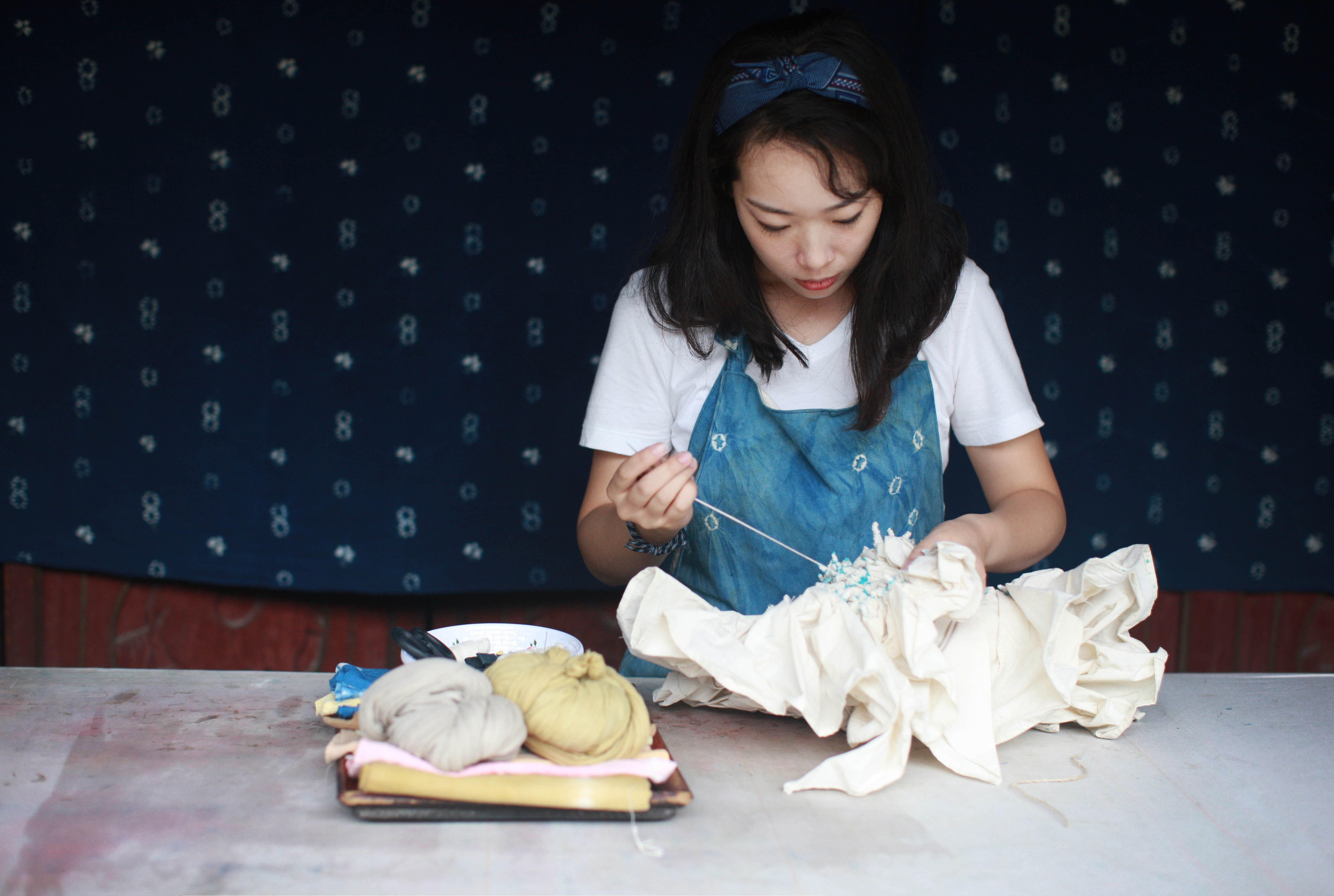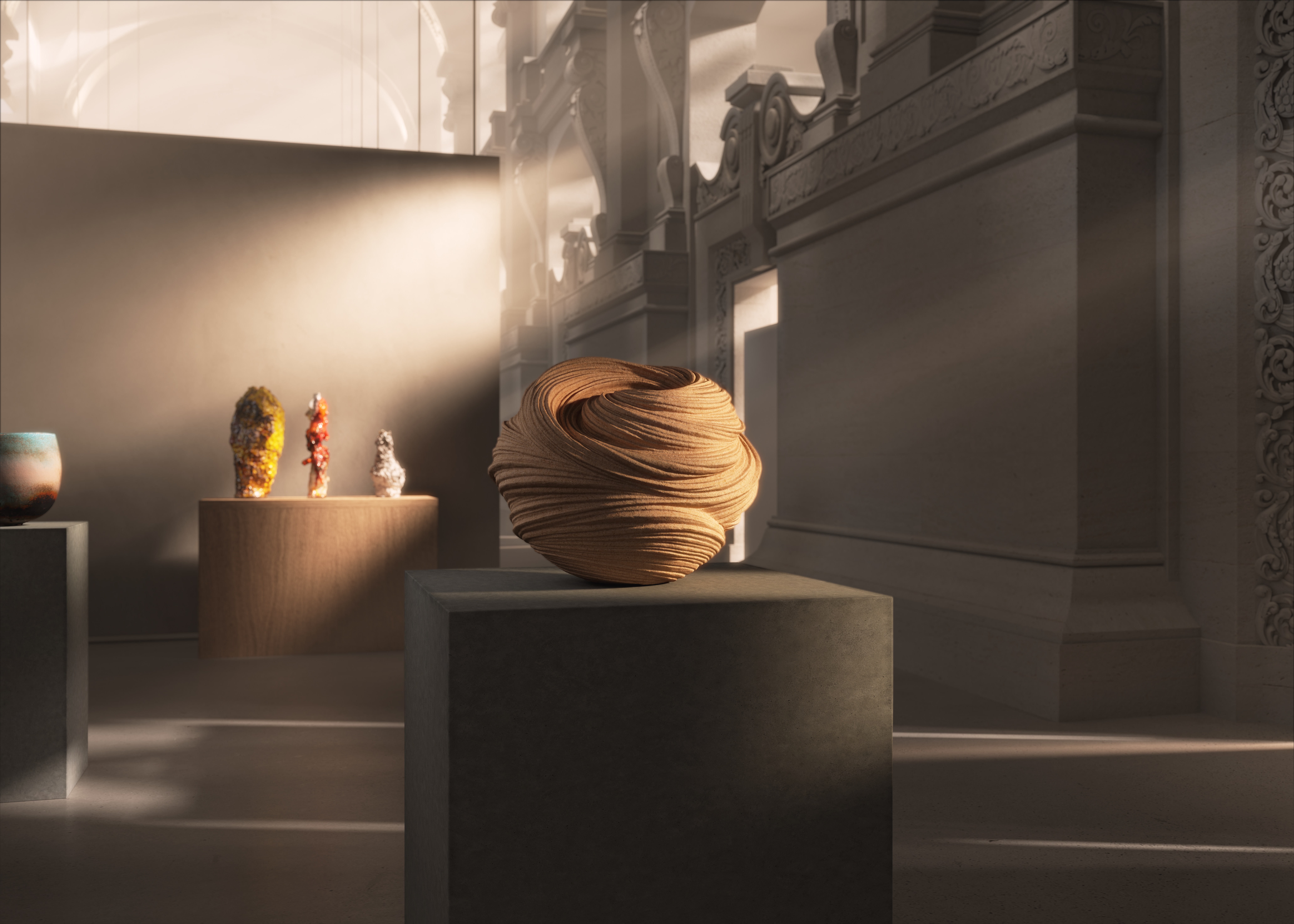Loewe Foundation Craft Prize 2021 winner announced
Textile designer Fanglu Lin has been awarded the LOEWE Foundation Craft Prize 2021 for her work referencing traditional sewing methods of the women of the Bai minority in Yunnan province, China

Receive our daily digest of inspiration, escapism and design stories from around the world direct to your inbox.
You are now subscribed
Your newsletter sign-up was successful
Want to add more newsletters?

Daily (Mon-Sun)
Daily Digest
Sign up for global news and reviews, a Wallpaper* take on architecture, design, art & culture, fashion & beauty, travel, tech, watches & jewellery and more.

Monthly, coming soon
The Rundown
A design-minded take on the world of style from Wallpaper* fashion features editor Jack Moss, from global runway shows to insider news and emerging trends.

Monthly, coming soon
The Design File
A closer look at the people and places shaping design, from inspiring interiors to exceptional products, in an expert edit by Wallpaper* global design director Hugo Macdonald.
The LOEWE Foundation Craft Prize has announced China’s Fanglu Lin as the winner for the awards’ 2021 edition. Working in textiles, Lin creates pieces working closely with the women of the Bai minority in Yunnan province, China. Her large-scale textile piece, ‘She’ (2016) was chosen by the jury because of ‘its monumental scale and breathtaking skill.’
Lin was part of a shortlist of 30 finalists representing 18 countries and six continents, and was selected by a jury comprising LOEWE creative director Jonathan Anderson, designers Naoto Fukasawa and Patricia Urquiola, and architect Wang Shu. The jury also selected two special mentions for the Prize, Chilean artisan David Corvalán, working in copper wire, and Takayuki Sakiyama, from Japan, a ceramicist.
‘Craft is the essence of LOEWE,’ said Jonathan Anderson at the award’s inaugural edition in 2016. ‘As a house, we are about craft in the purest sense of the word. That is where our modernity lies, and it will always be relevant.’
‘I think people are becoming more and more obsessed by the idea that we must protect these things for future generations, as much as we need to protect the planet,’ he added this year as the winner was announced through a digital exhibition.
Fanglu Lin and the craft traditions from China’s Bai minority

‘She’ by Fanglu Lin (2016)
What motivates Fanglu Lin in her work is ‘the need to salvage fading traditions and folkways of China’s ethnic minorities.’ Having studied in Germany and Japan, Lin returned to her native China in 2014 to research and explore the thousand-years-old methods of sewing, dyeing and embroidery typical of the Bai minority in the Yunnan province of China, combining the traditional craft with a contemporary artistic expression. ‘When I first saw [the technique], with its rich texture and primitive power, I knew that this was what I had been looking for: since then, I have started to research on the inheritance of Bai tie dyeing and the artistic creation based on this ancient craftsmanship.’ The technique, Lin explains, was inherited by the local women and preserved over centuries. ‘The power and the inspiration these women have brought to me are essential and will never be forgotten. My works are a homage to them.’
Her winning artwork, titled ‘She’, is a large-scale wall piece created using the tie process of the tie dyeing technique. Through sewing, thread drawing and knotting on the cloth, the plain fabric can be transformed into something astonishing, explains Lin. During the creation process, she moved to the Yunnan province to learn the craft: ‘the women of Bai minority imparted their skills to me selflessly, at the same time, their hard-working spirit also deeply moved me. Every bit of emotion and thought in Yunnan is integrated into this work.’
What impressed the jury was the scale of Lin’s work as well as her skill. ‘Fanglu Lin translated her in-depth research into an impressive work, which is an explosion of this new textile approach, totally immersed in an unstoppable process of innovating and re-establishing roots, beyond tradition,’ commented Patricia Urquiola.
Craft brings you into another world, it gives you another viewpoint on other parts of culture around the world, and I think this is incredibly important. It opens our eyes to it
Jonathan Anderson
‘What is interesting about the [her] work is that it is of such a monumental scale that it really takes you into this landscape,’ adds Anderson. ‘I find it incredibly fascinating—the idea that it consumes you and you are lost within this huge amount of imagination. This happens through a very traditional technique, but by taking the technique and blowing it to such a proportion, that becomes the abstract.’
A common theme in today’s most celebrated young and emerging craftspeople is a desire not only to engage with but to also actively preserve craftsmanship techniques: the impact young generations of artisans will have on the preservation of artisanal traditions is immense, and Flanglu Lin's work is a fitting example of this. ‘The idea of younger people going back into the past and trying to fish out things, and cultivate them, has become more and more important. I think people are becoming more and more obsessed by the idea that we must protect these things for future generations, as much as we need to protect the planet,’ comments Anderson, adding how the work can't be extricated from the history and context within which it was created. ‘This is what is so fascinating—it brings you into another world, it gives you another viewpoint on other parts of culture around the world, and I think this is incredibly important. It opens our eyes to it.’
For Lin, being awarded with the LOEWE Foundation Craft Prize is an opportunity to expand the scope of her artistic mission. ‘I have been committed to the inheritance and artistic innovation of traditional craftsmanship for a long time,’ she says. ‘This year, I have a new artistic plan, which is to go to Guizhou, China, to study Dong minority’s bright cloth and hand-made cloth. I will continue my creative methodology to bring the traditional handicrafts of the area, which is defined as a living fossil of art, out of the mountains and create more artworks.’
The LOEWE Foundation Craft Prize 2021 goes digital

A render replicating the Great Hall of the Musée des Arts Décoratifs, Paris, with a virtual exhibition of the LOEWE Foundation Craft Prize. The ceramic work of Takayuki Sakiyama, special mention from the jury, can be seen in the picture
As the LOEWE Foundation Craft Prize exhibition was staged through a virtual showcase that digitally reproduces the Great Hall of the Musée des Arts Décoratifs, which has been modelled for the first time in 3D form allowing for the works to be displayed in an immersive setting. The award announcement also marks the debut of The Room, a new digital platform serving as the first public database of contemporary craft, part of LOEWE’s commitment to supporting global craft.
The exhibition does a brilliant job at highlighting the precious nature of the craft on display, and its artistic expression. ‘I think the boundaries between craft and art are starting to slowly disappear—we are starting to look at craft in a very different way,’ concludes Anderson. ‘In the last 10 years we have started to understand that craft can be sculptural, it can be painterly, it can be tactile, it can be functional. And we’re starting to see that within contemporary art. I think that we’re starting to see that we are wanting more from the hand, and that’s why there’s a closer link between the two.’
INFORMATION
craftprize.loewe.com
theroom.loewe.com
Receive our daily digest of inspiration, escapism and design stories from around the world direct to your inbox.
Rosa Bertoli was born in Udine, Italy, and now lives in London. Since 2014, she has been the Design Editor of Wallpaper*, where she oversees design content for the print and online editions, as well as special editorial projects. Through her role at Wallpaper*, she has written extensively about all areas of design. Rosa has been speaker and moderator for various design talks and conferences including London Craft Week, Maison & Objet, The Italian Cultural Institute (London), Clippings, Zaha Hadid Design, Kartell and Frieze Art Fair. Rosa has been on judging panels for the Chart Architecture Award, the Dutch Design Awards and the DesignGuild Marks. She has written for numerous English and Italian language publications, and worked as a content and communication consultant for fashion and design brands.